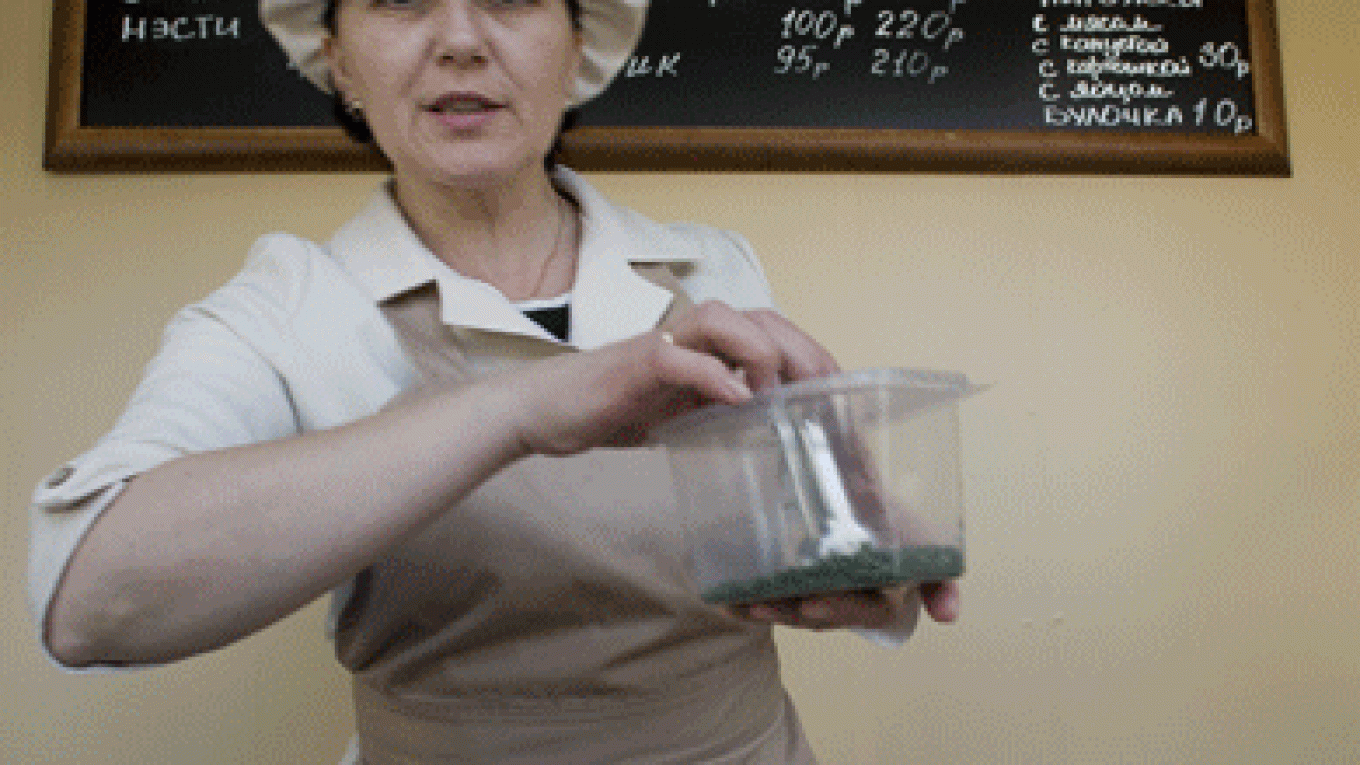Emerging from a war between Moscow officials and kiosk owners, the Soupchik cafe chain, which originally gambled on street business, has bounced back with four cafes and, starting from March 1, will open a new one in a mall foodcourt every month until the end of the year.
Soupchik opened its first kiosk, at the Smolenskaya metro station, in April 2010. That was followed in May by one at Novoslobodskaya and one at Park Pobedy. About $25,000 was invested in each cafe — but two of them didn't last very long. The one at Smolenskaya was shuttered with others nearby during the summer, and the one at Park Pobedy turned out to be unprofitable.
In November, when newly appointed Mayor Sergei Sobyanin began a campaign against kiosks, the Soupchik kiosk at Novoslobodskaya also began facing problems. It survived, but keeping it has been an uphill battle.
"They didn't make us remove it completely, but asked us to move it 50 meters. It turns out that our kiosk was 'violating the visibility at the intersection,'" Soupchik general manager Zalina Abdusalamova said. "Then later they granted us permission to put the kiosk in exactly that same spot," she added. The electricity was cut off several times, and with daily sales averaging about 12,000 rubles ($400), the fledgling company faced staggering losses.
This forced Soupchik to rethink its strategy. In the summer they realized that it would be incredibly difficult to expand the kiosk chain dynamically, Abdusalamova said. "The street business is the most difficult. You have to deal with the government, and with the often changing, unpredictable rules of the game. In a mall, however, there are businessmen and understandable rules that are spelled out in the lease agreement," she said. And the rent is low because the cafe needs only a small area — 8 by 12 square meters, for instance.
Russia is the second highest consumer of soups in the world, behind China, according to the Campbell Soup Company. Each year, Russians eat more than 30 billion servings of soup, 90 percent of them at home. But in Moscow, as recently as 2009, no one was selling soup to go.
Soupchik is not the first fast-food soup restaurant in Moscow, but it is the first to really offer soup in a cup, said Yulia Matveyeva, chief editor of Foodservice magazine, likening it to "coffee to go."
"It's the hardest to come to a foodcourt as a small brand that has yet to build a loyal following," Matveyeva said. "It won't be easy for Soupchik to compete with big-name cafes offering soups. But the business climate at food courts is more predictable. You can try price-cutting and improving your menu, and know that tomorrow your restaurant will be standing in the same place — unlike on the streets, where business has become risky."
A Message from The Moscow Times:
Dear readers,
We are facing unprecedented challenges. Russia's Prosecutor General's Office has designated The Moscow Times as an "undesirable" organization, criminalizing our work and putting our staff at risk of prosecution. This follows our earlier unjust labeling as a "foreign agent."
These actions are direct attempts to silence independent journalism in Russia. The authorities claim our work "discredits the decisions of the Russian leadership." We see things differently: we strive to provide accurate, unbiased reporting on Russia.
We, the journalists of The Moscow Times, refuse to be silenced. But to continue our work, we need your help.
Your support, no matter how small, makes a world of difference. If you can, please support us monthly starting from just $2. It's quick to set up, and every contribution makes a significant impact.
By supporting The Moscow Times, you're defending open, independent journalism in the face of repression. Thank you for standing with us.
Remind me later.






